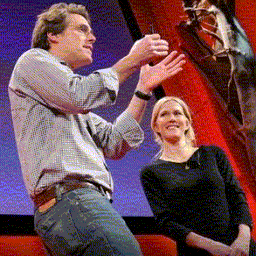Rufus Griscom and Alisa Volkman, parents and creators of the parenting site, babble.com, have an interesting talk on TED about the taboos of parenting. The talk about four parenting taboos:
1) You can’t say you didn’t fall in love with your baby in the first minute (this is a very funny part of the talk), 2) You can’t talk about how lonely having a baby can be, 3) You can’t talk about your miscarriage, and the fourth especially got my attention:
4) You can’t say your average happiness has declined (since becoming parents). You’re supposed to say your life has never been better, so rich and full, yada yada.
When in reality the mom is lonely, and as the Today Show quotes from the Journal of Happiness, the effect of children on the life satisfaction of married individuals is small, often negative, when the babies come along. It’s taboo to talk about the real and actual sentiment of discontent.
Parents also can’t talk about the ambivalence that psychiatrist Gail Saltz says has been inevitable for every generation.
The reason for the unhappiness? Griscom and Volkman say it’s because parents walk in with the wrong expectations, and having realistic expectations makes for a happier parenting experience. You need to walk in knowing you will be trading a certain level of happiness for the transcendent moments with your kids.
Saltz adds to this–that if people could talk about the inevitable ambivalence more openly, parents would have a happier parenting experience. She also points to how the experience of parenting has fundamentally changed. In today’s child-centered universe, parenting has become a “competitive sport” and the stress that comes with this is bound to affect people’s levels of happiness.
Griscom and Volkman say that candor is critical to collectively being good parents. This is all good, but they are talking about doing this after they have kids. What if it wasn’t taboo to talk more about these and other realities of parenthood before people became parents?
Many would start the parenting process more honestly and conceivably have a happier experience, during the experience, not just in hindsight. Realistic expectations would make for a happier experience.
But if we allowed the raw realistic expectations to be more fully out there, would this influence more people to say no to parenthood altogether? Would throwing away the rose colored glasses pre-parenthood make for more acceptace of the choice to opt out of the experience?
For some, I think they will have kids no matter what. For others, nixing the taboos could make for smarter decisions to become parents in the first place.
What do you think?






This is interesting; I did notice at the end that she had to add that parenthood may not bring happiness as we usually think of it, but it will make you whole and fulfilled. That may happen for some, but those feelings don’t just automatically come with parenthood. I think that full disclosure of the realities of parenthood would probably convince many fence-sitters that it’s too much of a gamble; but people who really want kids would tell themselves “It will be different for me”, and it might be if they are more prepared for what parenthood really entails. Unfortunately, most people don’t really ponder parenthood ahead of time, they just stumble into it. This always amazes me, I can’t think of a bigger life decision, yet it is taken so lightly. I would like to think that if people were more informed, many more might decide that having kids isn’t for them, but most people just go through life in whatever direction the current is taking them… they will continue to do what the majority of people are doing, and that has always been having kids.
Jacinda–so well said! ~L
I agree, Jacinda. Many people do seem to take this decision incredibly lightly. I think most people don’t make conscious decisions about many aspects of their lives, though. I have friends who have gotten into and stayed in rather crappy relationships (or jobs or living situations) because that’s just what you’re suppose to do. They seem to have a difficult time imagining another way of living.
(This is in _no_ way to say that making less common choices in live is better. There’s no such thing as a one-size-fits-all life. I just wish that more people would consciously think about what they do and why they do it. Even if one doesn’t make any changes as a result of thinking about these things at least you’d know _why_ you were doing it!)
I certainly think that the reality would make people think twice. But, like any wrong decision, people hate admitting it. On the reality note, there is a book that a friend of mine wrote a few years ago called “Birth Stories”. It recounts the actual experiences of women giving birth. For me it read like one car crash after another. Anyone who is on the fence may want to check it out.
Mrs Flowerpot–you are a brave reader!
@mrs flowerpots. As I say, there is nothing natural about natural childbirth!